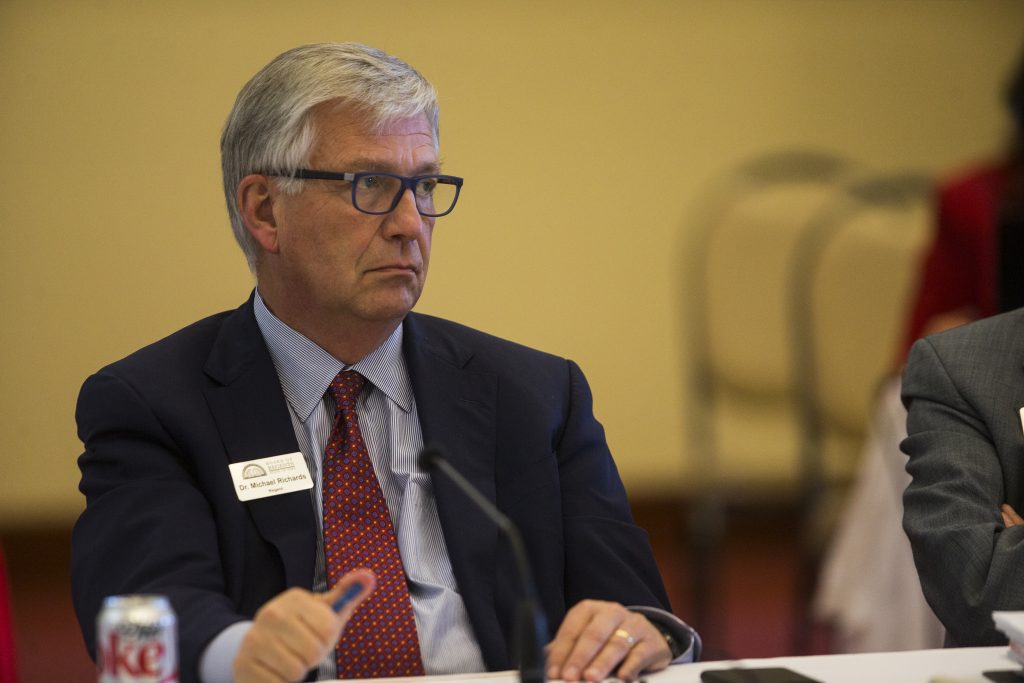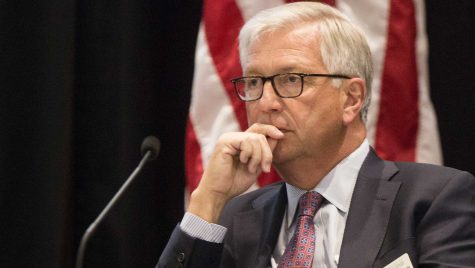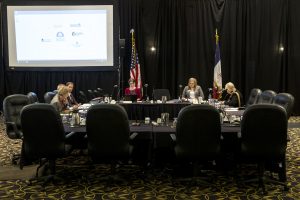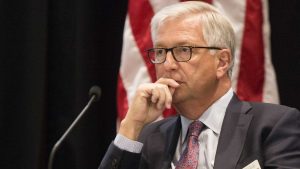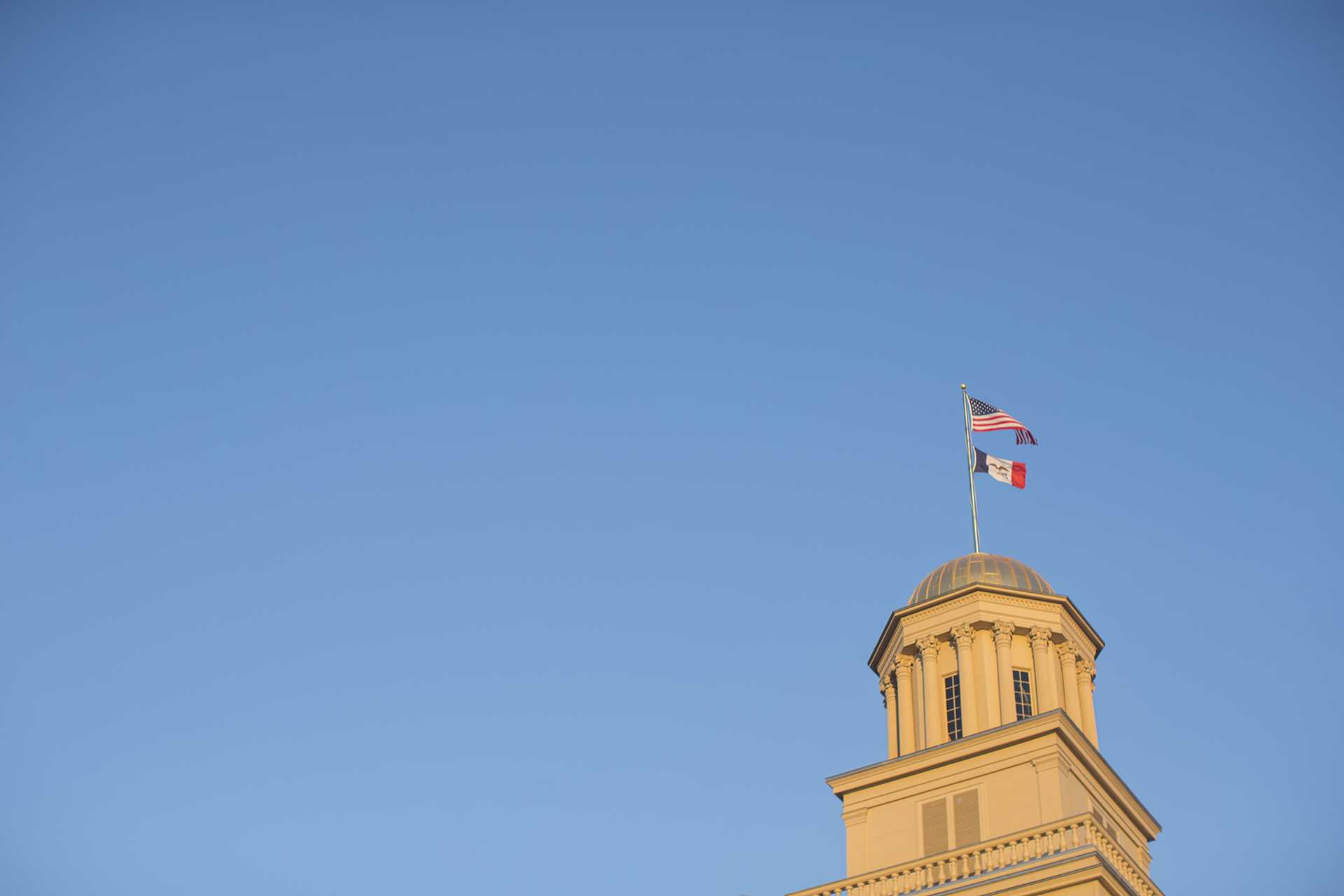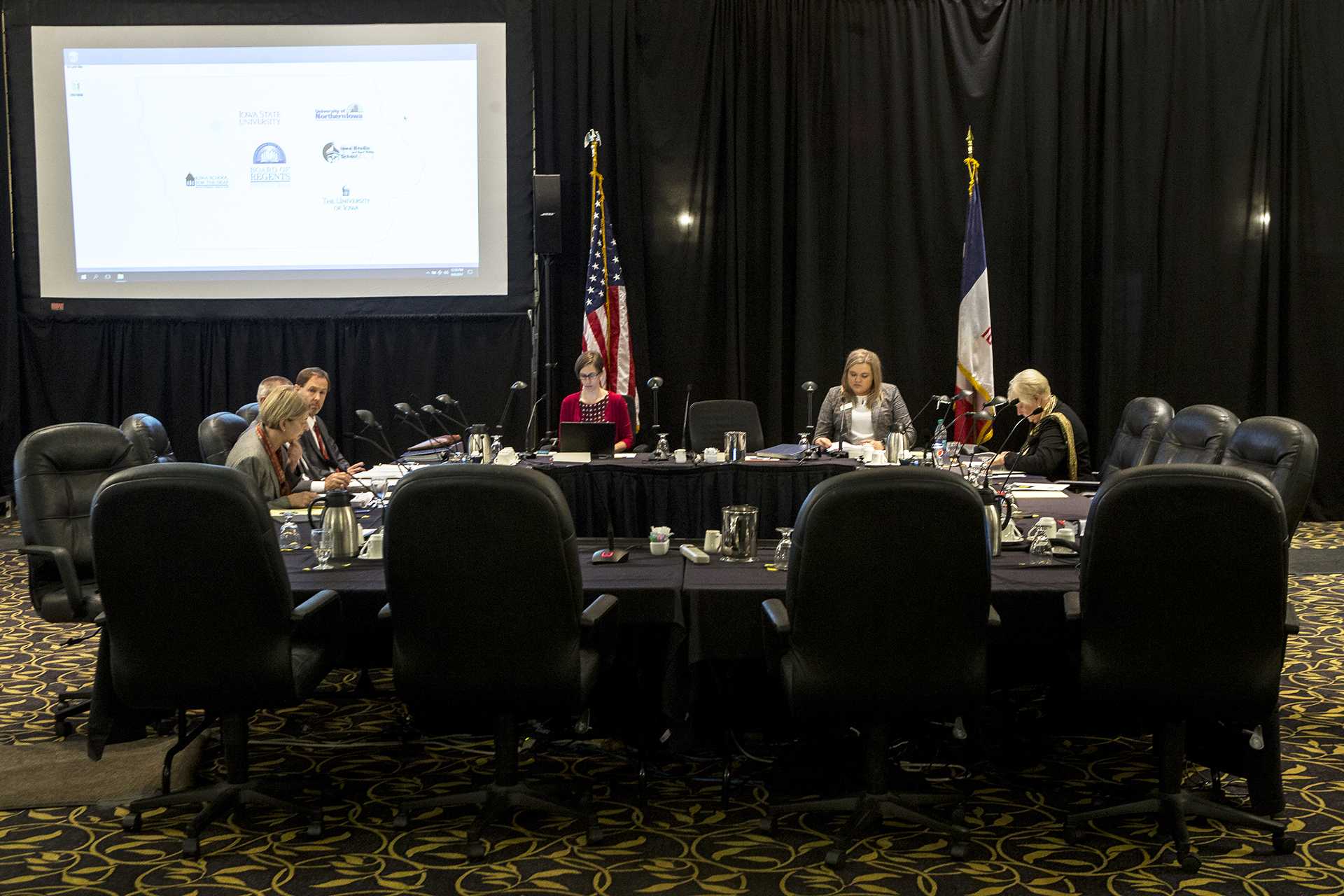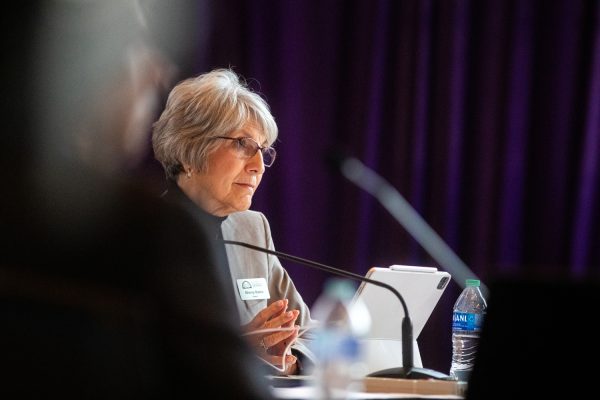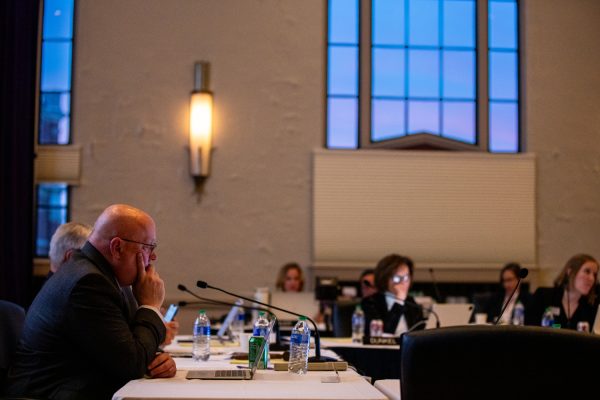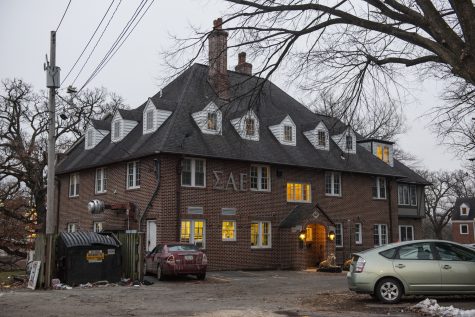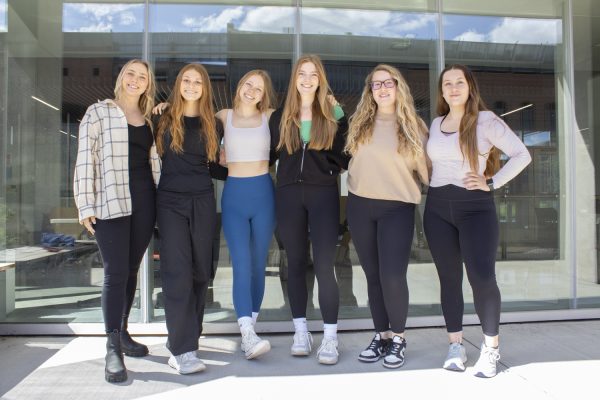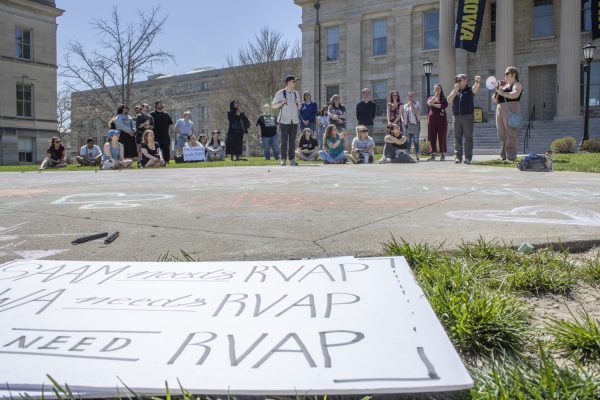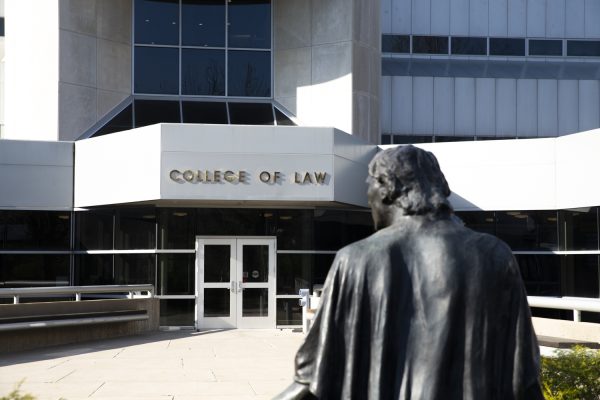Iowa Board of Regents to unveil new multi-year tuition model in November
Following calls for predictable tuition increases, the state Board of Regents plans to release a multi-year tuition model in November.
Regent Michael Richards listens to a presentation during a meeting in the Reiman Ballroom of the ISU Alumni Center in Ames on Wednesday, Feb. 22, 2017.
September 13, 2018
After the state Board of Regents and the three public universities it governs convened in 2017 to examine ways to make tuition increases more predictable despite unstable state support, the regent president announced Thursday the regents will soon unveil a multi-year tuition model.
Regent President Mike Richards said Thursday the regents will discuss a model that lays out a baseline percentage increase for resident undergraduates at the Nov. 15-16 meeting, with specifics on the ranges of the increases coming at that time.
The plan will start in the 2019-20 academic year. A first reading of the proposal for that year’s tuition increases will come during the 2019 calendar year.
Richards has previously indicated the model would lay out a baseline range of increases for five or so years. He told reporters Thursday the model would focus on resident undergraduates only, not nonresident students.
The regents’ current process of approving tuition rates has been criticized after two consecutive votes to increase tuition over the summer, which students have said makes it difficult to plan for educational expenses. Over the summer of 2017, the regents organized a Tuition Task Force to examine solutions to make tuition increases more predictable.
The vote on 2018-19 academic year tuition rates was delayed after the state Legislature passed midyear budget cuts to the University of Iowa and Iowa State University of $10.9 million, and as the regents awaited approval of the fiscal 2019 appropriations request.
Gov. Kim Reynolds told The Daily Iowan on Sept. 8 that despite being in a tough situation with the budget, the state does invest in higher education and other job-training opportunities outside of high school.
“Just like families do across the state they have to balance their budget and they have to prioritize, and that’s what a lot of our agencies had to do across the state,” she said. “But we are still going to make sure our kids are prepared and do everything we can to keep the cost down and support our universities.”
At the Thursday meeting, the regents approved their appropriations request for fiscal 2020, which totals nearly $630 million to be allocated toward towards the special schools, economic development, agriculture, and other areas, and $499 million of that amount would go toward the universities’ general funds.
That request includes a $20 million increase overall, and $18 million of that boost in support would go into the universities’ general funds to support resident undergraduate financial aid.
In comparison to surrounding states, Iowa provides less than the average need-based financial aid to resident students and requires a minimum of $20 million to move up even one spot, according to regents’ documents.
“Every year is different, and we think our request is reasonable and we work with the universities and we’ve been working with the Legislature for over a hundred years,” Richards told reporters Thursday. “There’s always a little give and take, but we feel our requests are within the range of what we expect.”
As enrollment growth has spiked over several decades, state funding for higher education has fallen significantly. Regents’ documents show that higher-education appropriations for fiscal 2019 are $68 million less than fiscal 2001.
“The bottom line is that the state needs to make an investment in future generations,” UI President Bruce Harreld told the regents Thursday. “The allocations of resources matter, and are important to the economy.”
Harreld said UI officials are cognizant that the UI’s actions in response to state funding cuts will create uncertainty across the community and state.
“Our three goals remain the same at UI,” Harreld said. “We prioritize student success, our research agenda, and economic development.”



